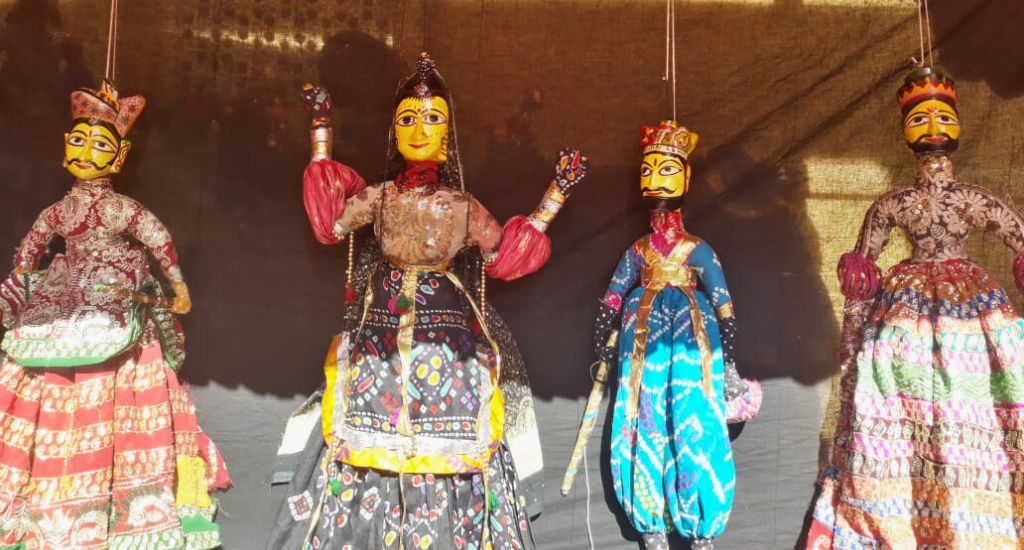
Puppets in Jaisalmer museum preserve old tradition
Storytelling through puppetry is being kept alive at this museum, but more needs to be done if the ancient art form is to thrive.

Storytelling through puppetry is being kept alive at this museum, but more needs to be done if the ancient art form is to thrive.
Attached to strings, the lifeless objects – resembling a human, animal, or mythical figure – spring to life twice a day, moving and emoting in the manner those pulling the strings make them to. They help to narrate stories – real or imaginary – and the audience is fixated. Most often, they return to watch and listen to more.
This possibly explains the popularity of the Desert Culture Centre and Museum in Jaisalmer of Rajasthan. Located next to the Gadisar lake, its principal draw remains its twice-a-day puppet shows.
“Even the puppets speak if listened to carefully,” explained Nandkishore Sharma, now 87, and the founder and custodian of the museum.
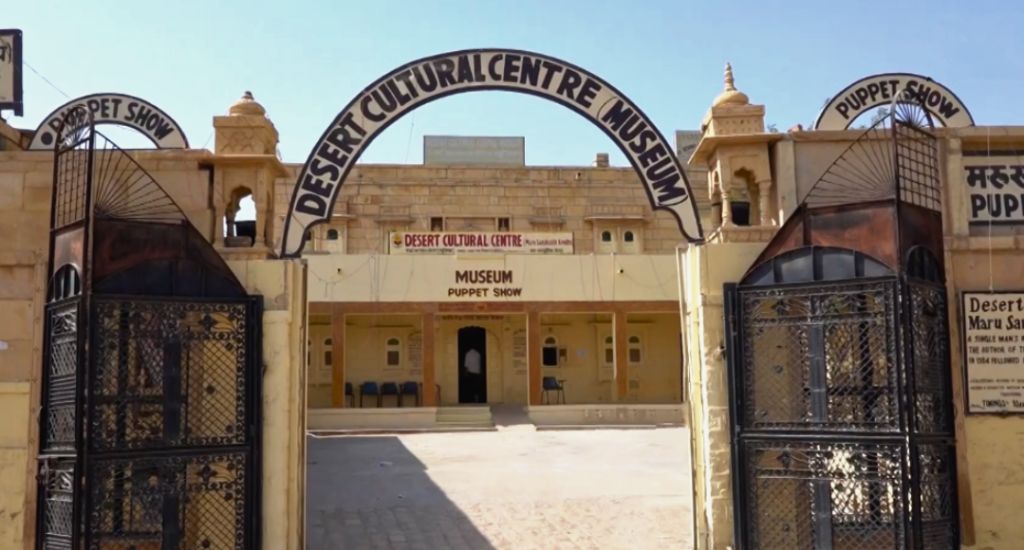
For the puppeteers – those pulling the strings – the puppets are their medium of expression and the source of earning their livelihood.
Puppetry has had a long history in the region. Old timers such as Sharma say that people in yesteryears would travel far and wide to show their skill. Post-independence, they came to Jaisalmer.
“My ancestors came to Jaisalmer and got a corner for puppet shows in the famous Jaisalmer Fort,” pointed out 33-year-old Rakesh Ram Bhat, a puppeteer. “Some years later though, that corner was gone. We were forced to the streets,” he added.
That prompted the puppeteers without an address to come to Sharma.
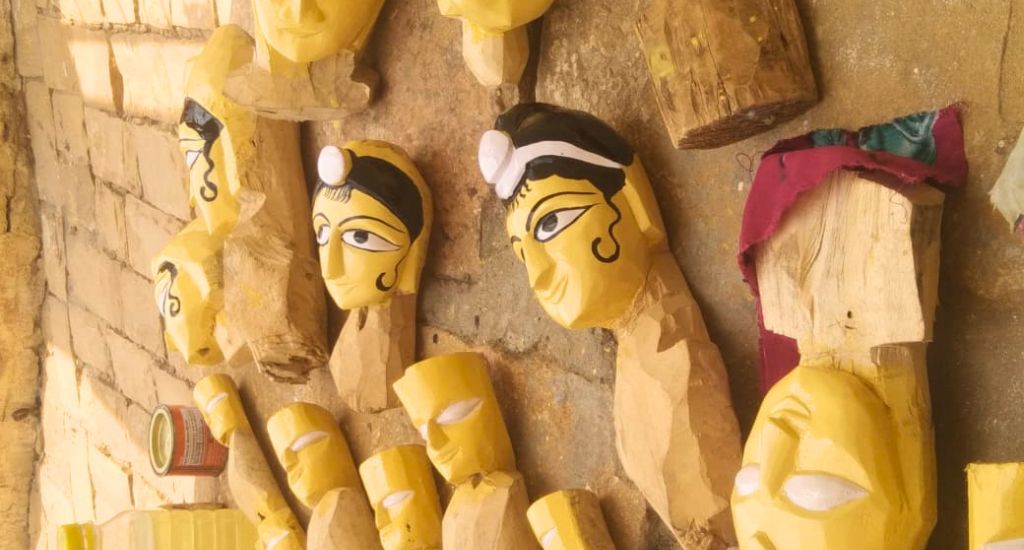
The museum came into existence in 1984 in a two-room building.
In 1993, the then Governor of Rajasthan, Bali Ram Bhagat, recommended that the state government provide Sharma with land for a bigger version of the museum. That being provided, KR Narayanan, the then Vice-President of India, inaugurated the Desert Culture Centre and Museum in 1997.
Also Read | Rajasthan’s rural life museum enchants visitors
Ever since the centre has become the go-to destination for passionate puppeteers to display their artistic prowess through their captivating and colourful puppets – each puppet becoming a living representation of the timeless tales that embody the essence of their existence.
They narrate interesting tales, including that of one Amar Singh Rathore, a celebrated member of the erstwhile royal family of Bikaner. Rathore remains a part of local folklore for having never fallen prey to either fear or greed.
The puppeteers also tell stories of present-day significance – from cleanliness to forest conservation.
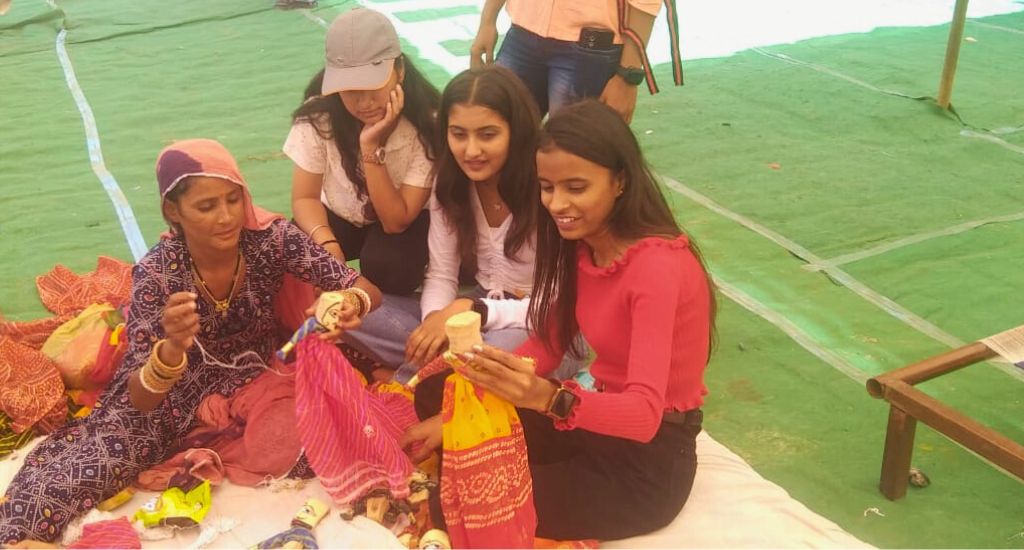
“We give voice to many social issues in the country,” said Rakesh Ram.
Contrary to the common belief that puppets are symbols of stifled freedom of expression, Sharma explained that they spoke eloquently – of issues and surroundings as also that of the plight of the puppeteers themselves.
“Puppets are full of life,” Sharma said. “They tell us of our history, present and future,” he added, saying puppetry was the art of the highest order.
Also Read | Madhya Pradesh activist gifts home for tribal museum
At least 15 puppeteers earn their living by showcasing their art at the museum. During the peak tourist season, they earn as much as rupees 2000 a day.
The museum also holds workshops for training schoolchildren and tourists in puppetry. Rakesh Ram has even travelled to other cities such as Goa and Chennai to teach the art form.
According to Sharma, the museum serves as a cradle for keeping puppetry alive in the country. “It is a vehicle for preserving traditions, folklore, and art,” he said.
“Puppetry is a clean entertainment filled with virtuous values and it comes with education and awareness,” he added.
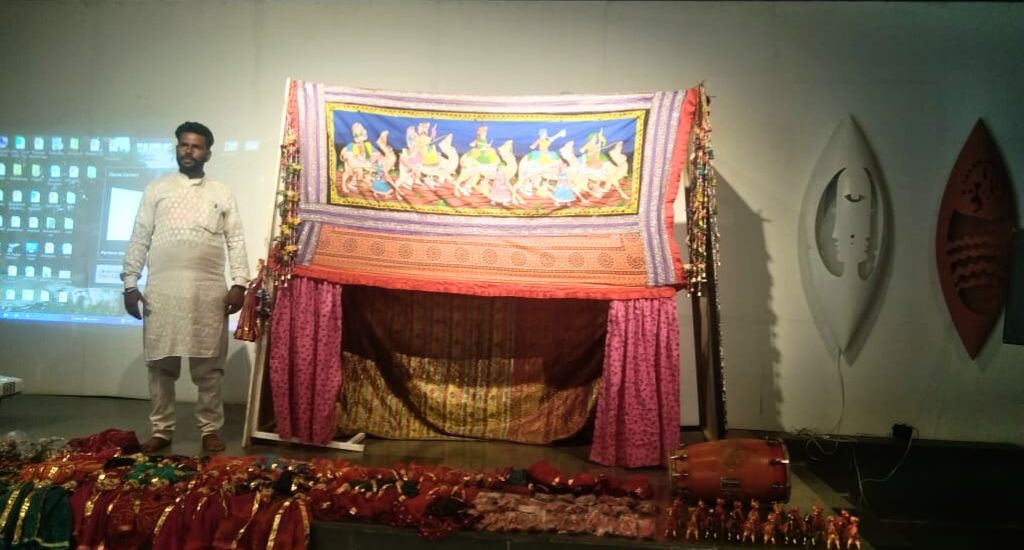
But puppetry is up against stiff odds with other forms of entertainment edging it out of people’s priorities in present times. “Our puppets are losing their voice when it comes to confronting current challenges,” lamented Rakesh Ram.
Also Read | Using puppet power to spread messages
According to him and other puppeteers of the museum, it is essential for the art form to be promoted so that it survives.
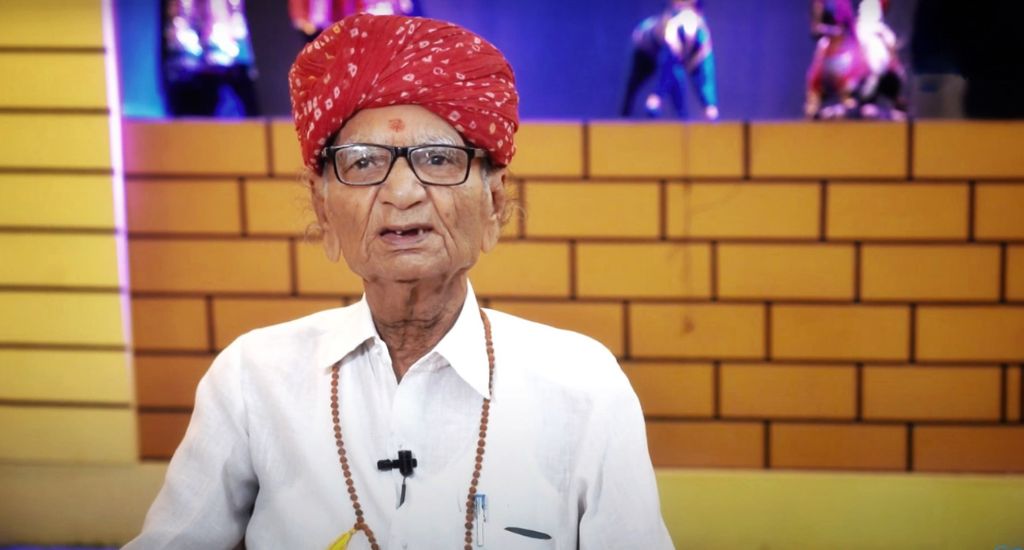
“Puppets whisper. Do listen to them,” urged Basheer Khan, a regular visitor of the museum. More people need to visit the museum so that the voice of the puppets does not get drowned in the current din.
Address: Desert Culture Centre and Museum Jaisalmer, Gadisar Rd, Amar Sagar, Pol, Jaisalmer, Rajasthan, 345001, India
Puppet Show Timings: 1st Show: 6:30 PM – 7:00 PM & 2nd Show: 7:30 PM – 8:00 PM
The lead image shows puppets at the Desert Culture Centre and Museum in Jaisalmer (Photo by Amir Malik)
Amir Malik is a freelance journalist based in Bihar. He writes about health, women and children and their interaction with nature. He is a Rural Media Fellow 2022 at Youth Hub, Village Square.